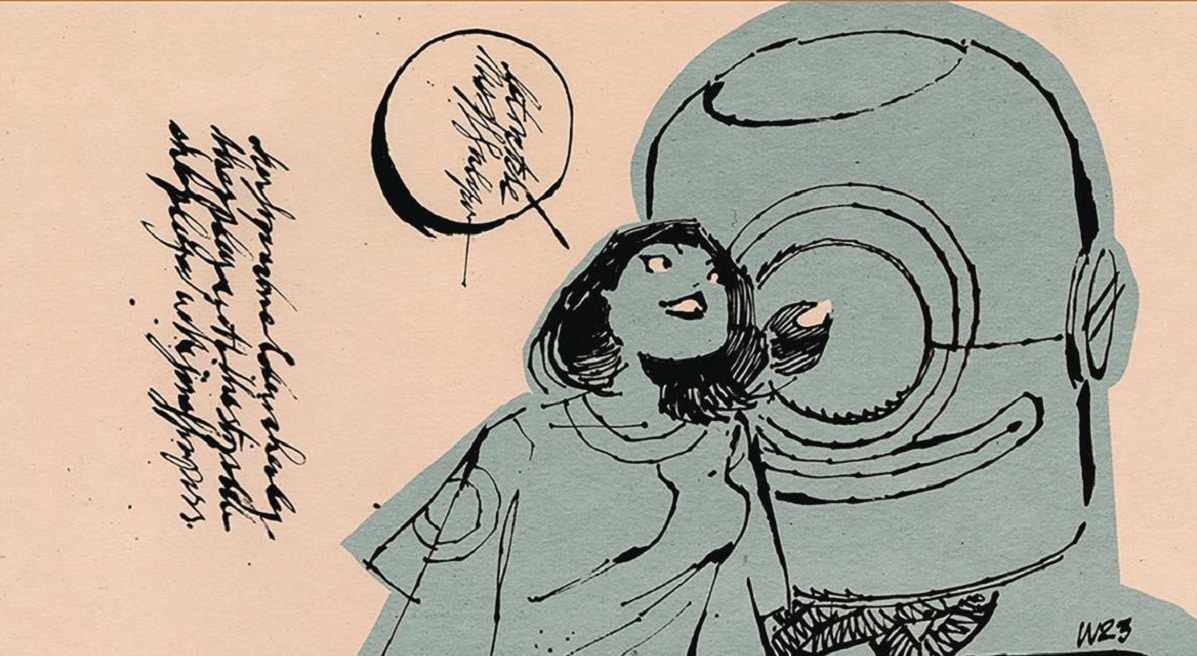Tumblr has just changed hands again, as part of Verizon’s acquisition of Yahoo under the rebranded Oath umbrella (re that name – someone’s definitely been watching Game of Thrones.) Although a here four years ago then Yahoo head Marissa Mayer paid $1 billion for a bunch of teenagers reposting pictures of Tom Hiddleston. Though the site is a vital nexus of internet thought and viral content, it has never made money, and it shares that with a lot of internet culture sites, NY Mag’s Brian Feldman reports:
It is rare, but not at all unprecedented, for a site to reach Tumblr’s size, prominence, and level of influence and still be unable to build a sustainable business. Twitter steers a huge portion of online culture, and has become an essential water cooler and newswire for journalists, tech workers, and otaku Nazis, but still has trouble turning a profit. Twitter itself shuttered its service Vine after just four years, even though the six-second-video social network had created more ubiquitous catchphrases and viral videos than any other social network over the same period. Reddit, the so-called “front page of the internet,” has been unable to fully capitalize on its enormous audience and influence, even after being purchased by Condé Nast (which it then spun out again; Condé Nast is very careful to specify that it does not own Reddit, though its parent company Advance Publications is a majority stakeholder). 4chan, whatever else you might think of it, is probably the most influential single website of the last decade, but its owner Hiroyuki Nishimura has said he is likely to shut it down. Even YouTube, which is synonymous with online video, still has trouble with profitability. As late as last October, CEO Susan Wojcicki was saying that the site was still in “investment mode” and that there was “no timetable” for profitability.

Maybe more importantly, Tumblr and Vine and the like never had data-mining operations as sophisticated as, say, Facebook. That’s why most of the advertising money in the industry has drained toward Facebook, which has 2 billion users, mounds of data, and can better assure advertisers of content cleanliness. Facebook is instructive: It’s less a place for creation or debate than it is for hosting all of the nitty-gritty, more boring data about your life. For much of its life, Facebook aggressively trafficked not in collecting rage comics and funny video clips, but in collecting bland lists of favorite movies and where you went to college — personal information that it can use to target ads with alarming specificity. And by selling ads against people’s identities, rather than their creative content, the company has churned out impressive profits, and given a wider impression that an ad-supported content platform is viable. (One of the great ironies of Twitter’s and Tumblr’s inability to make sustained profits is that Instagram and Facebook are both full of videos and posts screenshotted and stolen from their more productive, less wealthy rival platforms.)
Is Tumblr going to…go away? Its early competitor and a similar service Posterous already did. Feldman suggests Tumblr’s survival is entirely dependent on how much money Verizon want to sink into trying to make it profitable. Which means that a vast, vast ocean, an entire galaxy of precious, precious internet history is at risk.
But then so is everything that isn’t one of the Big Five. We can’t live in an Underpants Gnome limbo forever. If you haven’t figured out how to make money yet, you probably aren’t ever going to.
But then, they said the same thing about webcomics, and this very blog is hosted on Hiveworks, a web publisher for webcomics that makes a good bit of money for its hosted comics. So there are exceptions and escape routes and possibilities. But this frontier of free platforms isn’t going to last forever. Another wake up call for the business plan of 2027.








I would LOVE to monetize my Facebook page!
Many more followers on FB than Blogger.
there has to be another way to monetize internet content than through selling user data and selling advertising, but no one in the tech business has figured that out yet. If any of these sites ever tried selling “admission” or elite status, even to the tune of .99 cents a year, they backlash would be mega.
A huge problem that needs solving, and I think it needs to come from a startup, not an already existing company.
The fact that twitter can’t make a single penny off the president and every politician, celebrity and brand of note using their platform has their exclusive communication tool speaks volumes. Venture capital and Investment companies in silicon valley are on to this as well. Funding is tougher to get. There are almost no new tech IPO’s. The only real money is in hoping you make an interesting enough product that facebook or google will want to acquire.
LINE Webtoon is quickly becoming the “800 lb. Gorilla” for webcomics, and many of their users migrated over from Tumblr.
They’re part of Naver Corp, which is the South Korean equivalent of Google, so they’re pretty stable. They generate over a half a billion in revenue annually, so paying comics creators for them is like finding some change in the couch cushions.
Creators who work their way up to Featured status do get paid a decent monthly wage (from friends there I’m hearing it’s $2-3K at the low end, with bonuses for better performing comics.)
For creators who aren’t on LINE’s payroll, they donate to users’ Patreon account based on the number of subscribers and page views you gather per month. However, you have to hit a minimum number of subs and views to be eligible.
Again, not *everyone* using the platform will get paid, but that’s true of anyone running an indie website. It’s all about the numbers.
It’s becoming increasingly clear that more and more creative endeavors need to be bankrolled by larger entities. Whether its Disney and Warner essentially having comics in their back pocket, or even fan sites selling out to larger entertainment companies.
This is why our next online project will be financed by a stable news and entertainment conglomerate, and we made sure the ink was dry before we even started on it.
(Some call it selling out. I call it survival.)
It’s getting too hard to go it alone. The “wild west” of the internet is becoming more and more gentrified.
And with that comes a steep increase in rent.
Tumblr is awesome for finding out what’s really going on; not just what 50 year old white guys like. I don’t think anyone is trying to make money directly off their Tumblr page.
I went to a talk where a member of Tumblr Australia best described the platform as your bedroom wall. It’s a place where you display all the things you are passionate about or find cute/funny etc. I’m not surprised that it’s not making huge money because of it. If they want to make money off it they need to find ways to take advantage of that bedroom wall aspect. Maybe premium personalisation options or transactions through the site which align with media partners and passions.
As a tumblr user I’ve frequently heard from other users that if an advertise is featured on their dashboard they are not likely to pay attention to it, and would actually turn them off from said company that was advertising, so I can’t say I’m surprised.
@Trevor Van As
In theory that would be a good idea however personalisation is user generated (themes, cursurs, favicons, backgrounds etc) and though tumblr offers themes for pay the user created themes are of much better quality in my opinion.
Comments are closed.